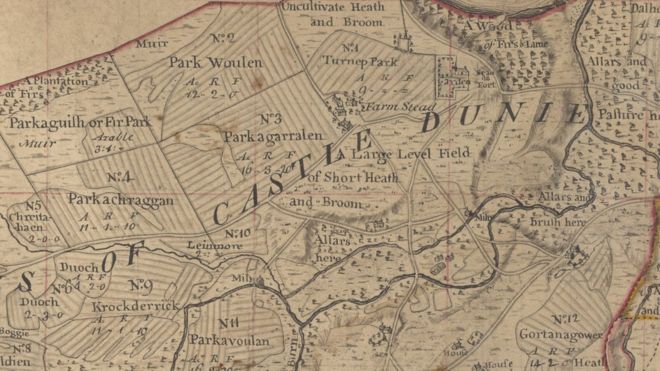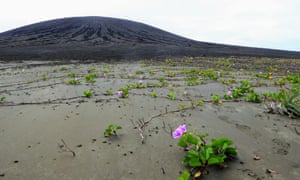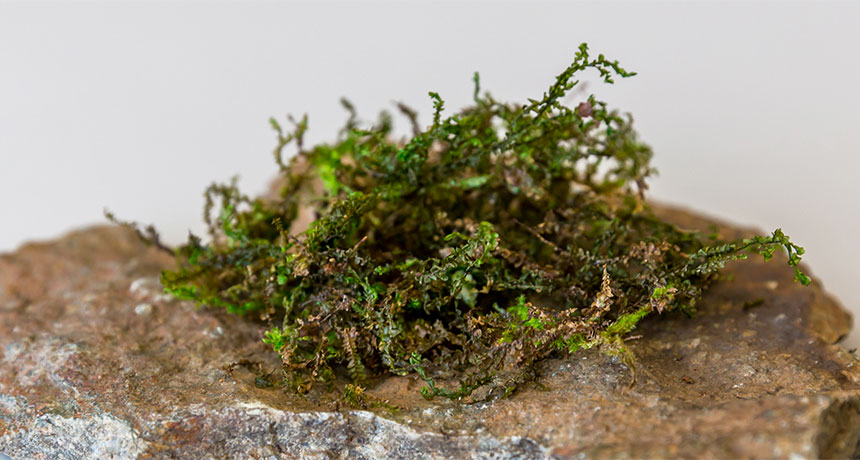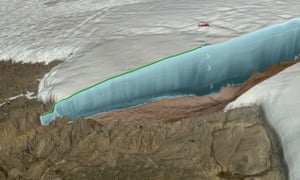via Boing Boing by Rob Beschizza

Gentlemen, pick your weap— oh, I guess you'll be using those big horns.
From the mad_hippies instagram:
Link through for video
==============================
via ResearchBuzz Firehose: Andrew Thomson for BBC Scotland

A map made by Peter May on the instructions of the Commissioners for the Forfeited Annexed Estates
Maps made to help the government control the confiscated estate of a notorious Jacobite have been made available to the public online.
They are among more than 400 maps belonging to the Lovat Estates near Beauly in the Highlands.
After the defeat of the Jacobites at Culloden, the British government took control of the estates of the 11th Lord Lovat, Simon Fraser, who was known as the Old Fox.
Fans of the Outlander books and television series will be familiar with the character, played by Scottish actor Clive Russell.
He was beheaded for high treason in 1747 because of his support for Bonnie Prince Charlie.
Continue reading
==============================
via the Killer Web Directory by Administrator
Here is a good looking infographic from the folks at Inkjets.com that will teach you all about the history of printing. Check out the 5,000 year history of printing starting in 3,000 BC and going all the way through to modern times.
See the full size version @ UK Feather Flags
==============================
via the Guardian by Eleanor Ainge Roy

Vegetation growing on the new Tongan island Photograph: Dan Slayback
Island sprang up near Tonga three years ago, giving researchers a glimpse of how flora and fauna colonise it
Nasa scientists have landed for the first time on one of the world’s newest islands, and discovered the three-year-old land mass is now covered in a sticky, mysterious mud, as well as vegetation and bird life.
The volcanic island sprang up in the ocean surrounding Tonga three years ago, one of only three new islands to emerge in the last 150 years that have survived more than a few months.
Continue reading
==============================
via Interesting Literature
This month’s classic film review analyses the inaugural film in the ‘tech noir’ genre, James Cameron’s 1984 powerhouse The Terminator
‘But The Terminator wasn’t based on a novel, surely?’ I hear you protest. You’re right, it wasn’t, so what’s The Terminator doing being featured in this monthly literary film review? Well, for one, because there are notable literary precedents for James Cameron’s 1984 science-fiction thriller, even if these are not direct influences per se.
Continue reading
==============================
We knew the Chicxulub crater was massive. We just didn't know how widespread the damage actually was.
via the Big Think blog by Derek Beres

A scientific mission led by IODP (International Ocean Discovery Program) studies the Chicxulub impact crater on the Gulf of Mexico, created after an asteroid crashed 66 million years ago. Photo credit: Ronaldo Schemidt / AFP / Getty Images
- The asteroid that crashed into the Yucatan caused a mile-high tsunami.
- The wave was 52 times higher and 2,600 times more energetic than the 2004 Indian Ocean tsunami that killed over 227,000 people.
- Sediment was disturbed 3,700 miles from the site of the crash.
==============================
via Boing Boing by Rusty Blazenhoff

image by University of Bern/Stefan Fischer
Something interesting from the world of science: Liverwort contains a psychoactive substance ("perrottetinene" or "PET") that has similar molecular structures to THC. Researchers think might be superior to THC for dampening pain signals and reducing inflammation. It just doesn't produce the same kind of high.
Continue reading
==============================
via About History

The Trebizond empire is a medieval Byzantine-Orthodox state, formed in 1204 on the Anatolian coast of the Black Sea as a result of the collapse of the Byzantine Empire.
Continue reading and you will find probably more information than you wanted or needed about Trebizond together with detailed maps.
==============================
via the Guardian by Ian Sample, science editor

An illustration of the ice-filled crater discovered in Greenland. Photograph: Nasa/Cryospheric Sciences Lab/Natural History Museum of Denmark
A huge impact crater has been discovered under a half-mile-thick Greenland ice sheet.
The enormous bowl-shaped dent appears to be the result of a mile-wide iron meteorite slamming into the island at a speed of 12 miles per second as recently as 12,000 years ago.
The impact of the 10bn-tonne space rock would have unleashed 47m times the energy of the Little Boy nuclear bomb dropped on Hiroshima in 1945. It would have melted vast amounts of ice, sending freshwater rushing into the oceans, and blasted rocky debris high into the atmosphere.
Continue reading
==============================
via Boing Boing by David Pescovitz
In the video above, the always-fascinating Paola Antonelli, architecture and design curator at New York's Museum of Modern Art, takes us through the history of the hoodie, "a humble masterpiece," beginning in ancient Greece and Rome.
No comments:
Post a Comment